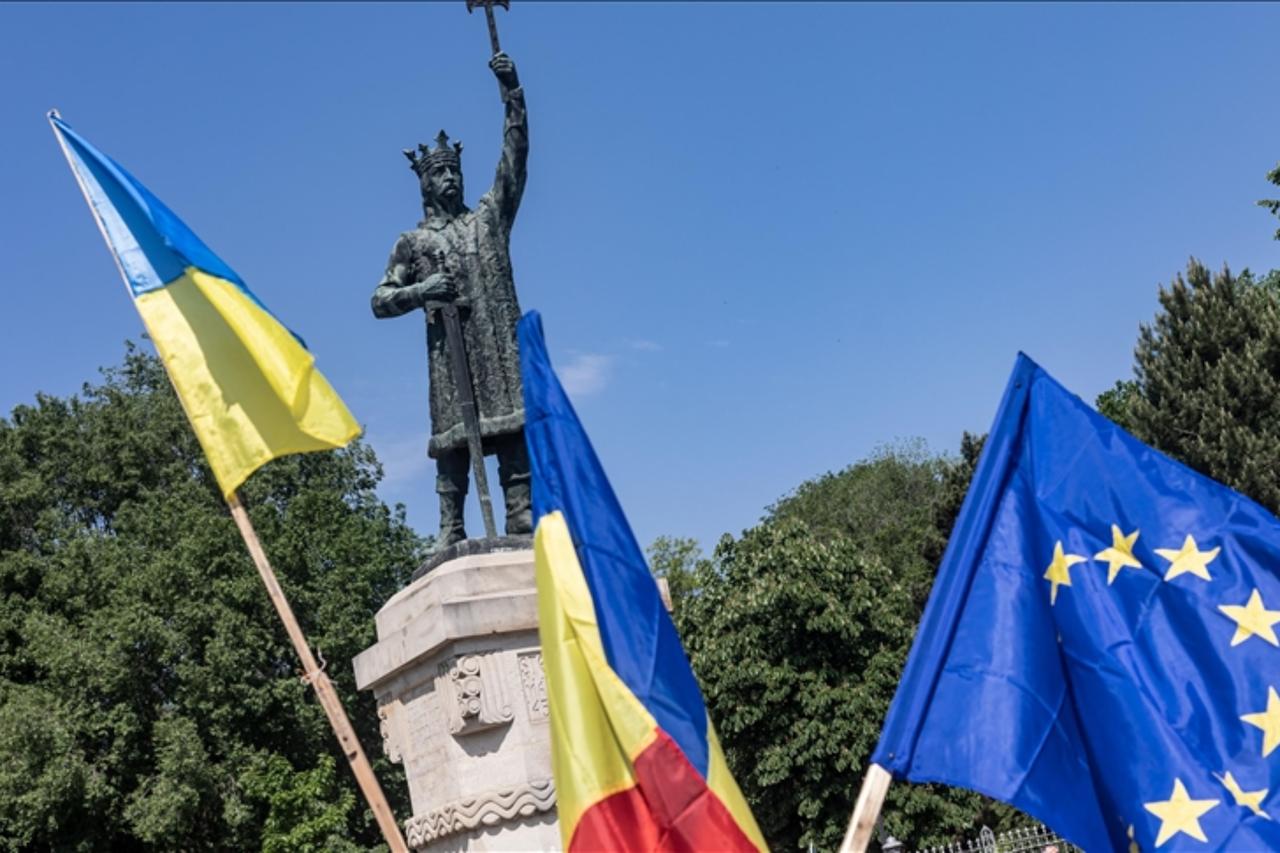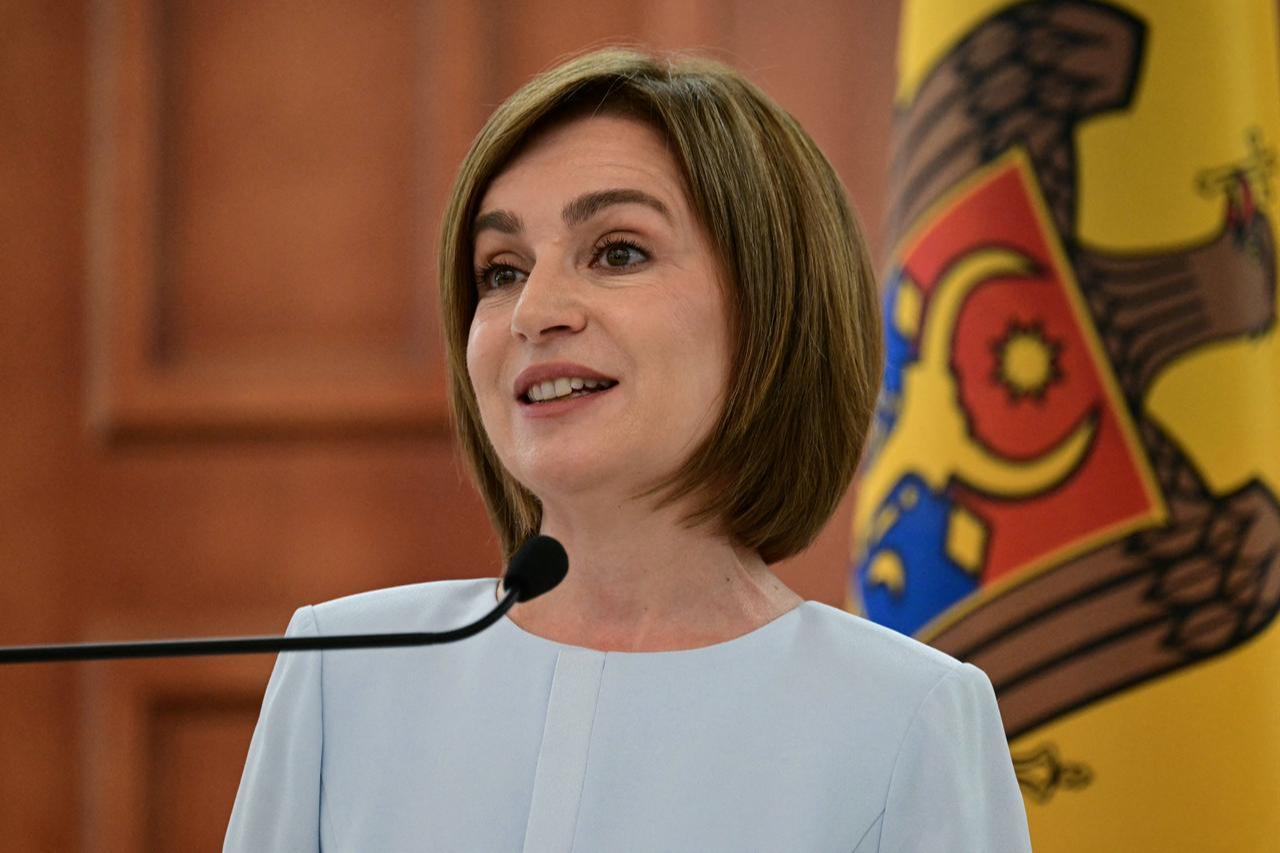
Ahead of Moldova’s parliamentary elections on Sunday, deepfake videos and unsubstantiated accusations targeting pro-E.U. President Maia Sandu are flooding social media, with analysts warning the country has become Moscow’s “testing ground” for information warfare in Europe.
The vote is seen as decisive for the future of the E.U. candidate nation of 2.5 million people, which must choose between deepening integration with Brussels or drifting back toward Moscow, from which it gained independence in 1991.
Most polls put Sandu’s pro-European Action and Solidarity Party in the lead, but she faces a tough challenge from the opposition. The president has accused the Kremlin of “unprecedented interference,” alleging Moscow has poured “hundreds of millions of euros” into buying votes and flooding voters with disinformation.
Weeks before the polls, Sandu was mocked in a deepfake video — generated with Luma AI — that showed her rapping in Russian as an ineffective leader. The video was part of Operation Overload, also known as “Matryoshka,” a Kremlin-linked disinformation campaign, according to the collective Antibot4Navalny.
Other claims spread online allege that Sandu suffers from schizophrenia or that her party has rigged the election. Russian-language Telegram channels have also suggested that European leaders plan to use her — an ally of Ukrainian President Volodymyr Zelenskyy — to start a war in Moldova and impose a dictatorship.

Investigations have uncovered widespread Russia-linked disinformation. Antibot4Navalny provided AFP with evidence of Kremlin-aligned Telegram posts later spread by influencers-for-hire on TikTok and bot accounts on X. Some English-language posts impersonated outlets such as AFP and the BBC, apparently targeting international audiences, including over one million Moldovans abroad.
The BBC this week reported on a Russia-funded network tied to fugitive pro-Russian politician Ilan Shor, which allegedly paid Moldovans to push propaganda online. Separately, Moldovan outlet Ziarul de Garda revealed that Shor-linked groups coordinated hundreds of activities through secret Telegram chats, training activists online for months before deploying them as paid trolls.
“Unfortunately, Moldova has become a testing ground for Kremlin information warfare in Eastern Europe,” said Nicolae Tibrigan, a research scientist at the Romanian Academy in Bucharest.
Experts warn the campaigns are designed not only to sway votes but to destabilize the EU itself. “The objective is not just to manipulate a few votes, but to erode confidence in the democratic process,” said Corneliu Bjola, professor of digital diplomacy at the University of Oxford.
Meta told AFP it was “continuing to monitor the situation” and said it had disrupted “the vast majority” of inauthentic activity identified. TikTok did not respond to a request for comment.
Analysts warn that if Moscow’s tactics succeed in Moldova, they could be exported across Europe. “Europe, with Romania on the frontline, is the ultimate target,” Bjola said.
On Tuesday, Russia’s Foreign Intelligence Service (SVR) accused the E.U. of planning to “occupy Moldova” and claimed NATO was preparing a “task force” in Ukraine’s Odesa region to intimidate Transnistria.
The SVR alleged that NATO was concentrating troops in Romania and that “the first group of career military personnel from France and Britain is already in place.”
Transnistria — a breakaway region along Moldova’s eastern border with Ukraine — has operated as a de facto state since a 1992 war, though it remains internationally recognized as part of Moldova. Its Soviet-era weapons depot and strategic location make it a potential flashpoint in the context of Russia’s war in Ukraine.